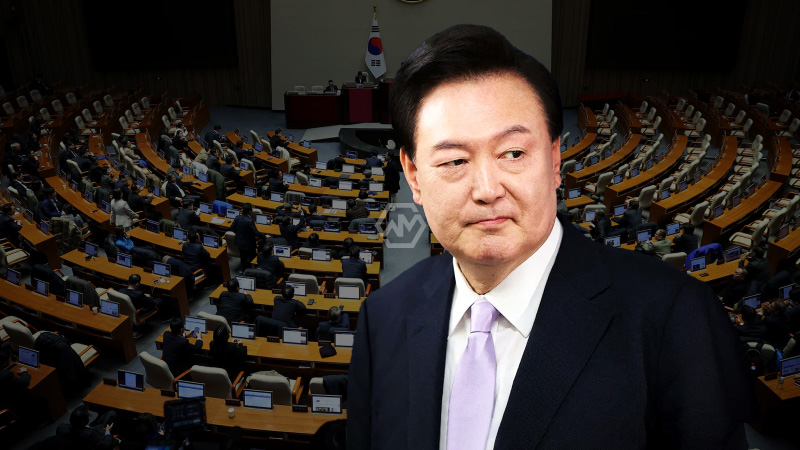- South Korea’s Constitutional Court unanimously removed President Yoon Suk Yeol over his unconstitutional martial law declaration.
- Yoon’s impeachment triggered deep political divisions, with celebrations and protests across the country.
- A new presidential election will be held within 60 days, with opposition leader Lee Jae-myung emerging as a frontrunner.
Yoon Suk Yeol’s presidency came to an abrupt end after South Korea’s Constitutional Court ruled that his attempt to impose martial law was unconstitutional.
The decision has left the nation deeply polarized. While anti-Yoon demonstrators celebrated what they called a victory for democracy, his supporters reacted with outrage.
South Korea Braces for Post-Impeachment Uncertainty
The Constitutional Court’s verdict was a decisive moment in South Korea’s democracy, reinforcing institutional checks and balances against executive overreach. By removing Yoon, the court reaffirmed the constitution’s supremacy and signaled that no leader is above the law. The ruling also raises concerns about the fragile balance of power between the executive and legislative branches.
The impeachment process, which unfolded over months, had already exposed deep political divisions in South Korea. Yoon’s supporters see his removal as politically motivated, while opponents argue it was necessary to safeguard democratic norms. His brief martial law declaration, though quickly reversed, damaged his credibility and raised fears of authoritarian tendencies.
Beyond domestic repercussions, Yoon’s removal has significant implications for South Korea’s foreign policy. With growing economic tensions between Seoul and Washington, especially regarding trade disputes under Trump’s policies, the absence of stable leadership could affect diplomatic negotiations. Additionally, relations with North Korea remain a critical issue requiring immediate attention.
As the nation prepares for a new election, opposition figures like Lee Jae-myung are gaining traction, though his own legal troubles add another layer of complexity. With a divided electorate, the road ahead is uncertain, and South Korea faces a turbulent transition period in its leadership.
South Korea’s political landscape has entered a period of intense uncertainty following Yoon’s removal. While his impeachment upholds constitutional principles, it has also deepened divisions that could shape the nation’s future for years to come.
“The strength of a nation derives from the integrity of the home.” – Confucius.



